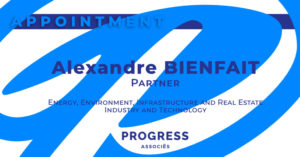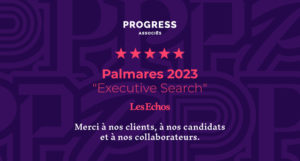
Dirigeants à l’ère du « comment », anticipation et responsabilité
Until recently, recruiting a manager meant above all looking for expertise, a track record of excellence, looking for the man who had already created value, the one who, in the future, would boost the financial performance of a group.
The result was at the heart of the system.
Of course, the situation has not changed radically, as any system tends to reduce the variations it experiences and keep them within acceptable limits.
Two unrelated movements have clearly marked the last few years: on the one hand, voluntary actions in favour of the feminisation of comexes, and on the other hand, a shift in emphasis towards the ‘how’.
More women in the company’s decision-making bodies makes it possible to take better account of all the customers’ expectations and to create more value … this is now understood … but what is the era of the how and what new behaviours does it engender?
“How” … means considering the way in which the future, newly appointed leader will obtain the required results, by emulating the collective as well as by awakening the best in everyone.
It is therefore now necessary not only to achieve excellent results but also to lead transforming changes, to promote remarkable customer experiences… all by getting the social body on board.
Our specifications as recruiters have changed and consequently our pre-selection and the way we conduct our interviews.
This is not without consequences for the French candidates themselves. It is no longer ‘only’ a matter of fighting to graduate from a prestigious school and thereby validate a certain ‘cognitive capital’, obtain results and develop one’s network… It is also necessary, as a manager, to express one’s ability to negotiate, generate trust and federate. In fact, the indicators are changing: the equation linking knowledge, power and success is breaking down. The legitimacy to assume a leading managerial role is also based on the expression of leadership and the ability to train, particularly in the face of uncertainty due to change. Thus, the era of autocratic management, disregarding others as well as differences, seems to be over, behind us.
Is this the end of rugged individualism and the exclusively hierarchical model? Is it the sign of the emergence of new values within companies, leaving more room for the collective and a more participative model? Some appointments might make us doubt it.
Nevertheless, the ‘how’ is gradually becoming an essential dimension for all organisations concerned by change, that is to say, for almost all of them: all the major groups are adopting managerial guidelines that emphasise social intelligence, diversity, cooperation and the ability to empower and develop employees. Pragmatism dictates these developments because the traditional hierarchical models no longer work.
In these environments, under the combined effect of multiple developments, it is clear that the level of demand is increasing at all levels. The behaviour of the new generation of leaders questions the attitude of their elders, integrating the “how” as an essential condition for individual and collective success. Necessity is the law.
They express an imperative need to move away from outdated “command and control” type of management to one that is concerned with cooperation at the highest level, with the comex and its leader being required to move forward as a team and no longer as a collection of individuals.
The new generation is now expressing its power by anticipating changes in its environment and taking responsibility for inspiring the collective.
So what will happen when this new generation of leaders assumes not a comex responsibility but a No. 1 position? Let’s bet that they will continue to do so, just as sensitive to the result as to the way in which it is achieved.
[ Automatic translation from french with DeepL.com ]
Date de publication : 9/11/2016






